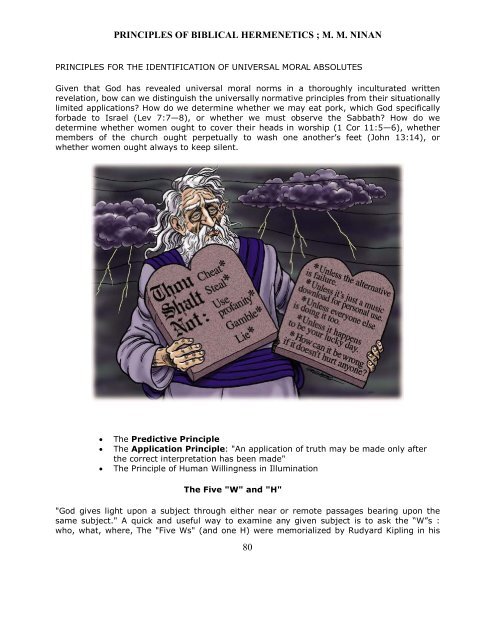Biblical Hermeneutics
Create successful ePaper yourself
Turn your PDF publications into a flip-book with our unique Google optimized e-Paper software.
PRINCIPLES OF BIBLICAL HERMENETICS ; M. M. NINAN<br />
PRINCIPLES FOR THE IDENTIFICATION OF UNIVERSAL MORAL ABSOLUTES<br />
Given that God has revealed universal moral norms in a thoroughly inculturated written<br />
revelation, bow can we distinguish the universally normative principles from their situationally<br />
limited applications? How do we determine whether we may eat pork, which God specifically<br />
forbade to Israel (Lev 7:7—8), or whether we must observe the Sabbath? How do we<br />
determine whether women ought to cover their heads in worship (1 Cor 11:5—6), whether<br />
members of the church ought perpetually to wash one another’s feet (John 13:14), or<br />
whether women ought always to keep silent.<br />
• The Predictive Principle<br />
• The Application Principle: "An application of truth may be made only after<br />
the correct interpretation has been made"<br />
• The Principle of Human Willingness in Illumination<br />
The Five "W" and "H"<br />
"God gives light upon a subject through either near or remote passages bearing upon the<br />
same subject." A quick and useful way to examine any given subject is to ask the “W”s :<br />
who, what, where, The "Five Ws" (and one H) were memorialized by Rudyard Kipling in his<br />
80


















